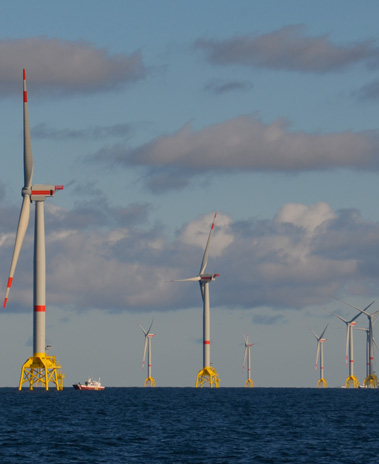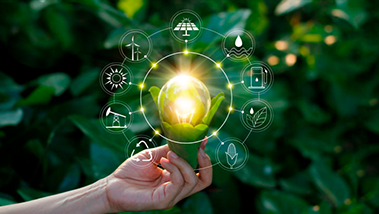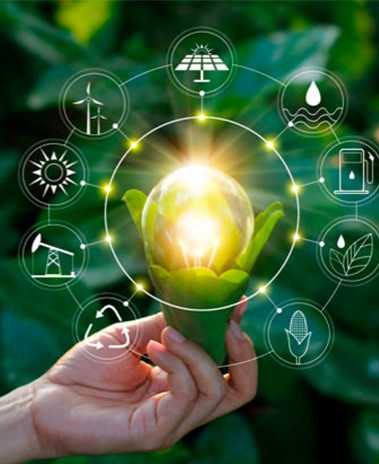#decarbonisation
Decarbonisation is the process of reducing the amount of carbon, mainly carbon dioxide (CO2), sent into the atmosphere. Its objective is to achieve a low-emission global economy to attain climate neutrality via the energy transition.
-
The chairman of Iberdrola, Ignacio Galán, took part in the Powering Past Coal Alliance (PPCA) event this morning. The coalition of governments and companies was set up in 2017 to promote policies and investment plans aimed at phasing out of...
Iberdrola and AFEC have joined forces to promote sustainable, electric home climate control in Spain
Iberdrola and the Spanish Association of Climate Control Equipment Manufacturers (AFEC) have entered into a strategic alliance to promote the use of sustainable electric climate control in our country. To do this, they have designed a work plan...
-
Facebook Iberdrola and AFEC have joined forces to promote sustainable, electric home climate control in Spain
-
Twitter Iberdrola and AFEC have joined forces to promote sustainable, electric home climate control in Spain
-
Linkedin Iberdrola and AFEC have joined forces to promote sustainable, electric home climate control in Spain
-
Whatsapp
-
-
The Climate Summit will kick off on 31 October in Glasgow (Scotland). With this in mind, the Center on Sustainable Investment and the Columbia University Climate School have organised the virtual conference Corporate Alignment to the Paris ...
-
Facebook Ignacio Galán recalls that "sustainability was important to Iberdrola long before ESG criteria became commonplace"
-
Twitter Ignacio Galán recalls that "sustainability was important to Iberdrola long before ESG criteria became commonplace"
-
Linkedin Ignacio Galán recalls that "sustainability was important to Iberdrola long before ESG criteria became commonplace"
-
Whatsapp
In the context of its commitment to the United Nations Sustainable Development Goals, Iberdrola group focuses primarily on compliance with SDG 13, climate action, making an active, determined contribution to a sustainable, low-carbon future to fight against climate change. In this regard, we have set targets to reach carbon neutrality by 2030 for carbon equivalent emissions of Scopes 1 and 2 and net zero carbon equivalent emissions by 2040 for all Scopes, including Scope 3 (expressed in CO2eq).
-
-
The company is putting an end to coal with the closure of the Lada (Asturias) and Velilla (Palencia) thermal power stations, culminating a process initiated in 2001 that has led to the closure of 17 coal and fuel oil thermal power stations around the world with a total production of more than 8,500 MW.
-
Facebook Iberdrola completes the closure of its coal plants and moves towards green transformation
-
Twitter Iberdrola completes the closure of its coal plants and moves towards green transformation
-
Linkedin Iberdrola completes the closure of its coal plants and moves towards green transformation
-
Whatsapp
Electricity is the most decarbonised energy vector due to its ability to integrate renewable energy sources, and the one that, more than any other, allows for a real increase in energy efficiency.
-












